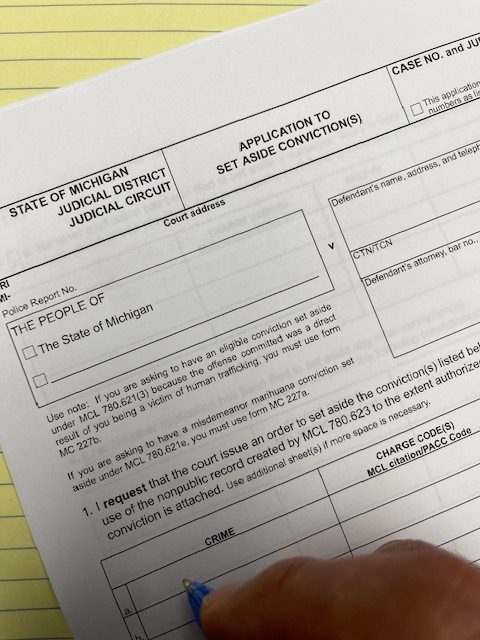While there seems to be a push to attract people to the City of Royal Oak for bar hopping, you should know that the Royal Oak police do not tolerate drunken behavior on its streets. Anyone who sits in the back of the 44th District‘s Court Room for a morning will tell you that the docket is full of drinking related cases which include drunk driving and various types of disorderly conduct such as public intoxication, peeing in public and disturbing the peace. The point of this blog post is two-fold; one is to inform how to avoid a disorderly conduct charge and the second is to explain how our office can help if you are being charged in Royal Oak.
Disorderly conduct is a criminal offense. It is classified as a misdemeanor and it is punishable by jail time, a fine and court costs. In addition, the following sanctions may also be imposed or court ordered upon being convicted, or found guilty, of disorderly conduct:
- Up to 2 years probation.
- Drug and alcohol testing while on bond or probation.
- Substance abuse/alcohol counseling.
- Community service.
- Oakland County WWAM community service.
- Restitution for any damages or injuries.
- Municipal response (police) costs.
A night out with friends should not end up as a disaster. It is our job to get your case under control and get you out of the legal system with minimal consequences and to avoid a criminal record.
What is Considered Disorderly Conduct in Royal Oak?
Legally speaking, the City of Royal Oak defines Disorderly Conduct as follows: § 278-35. Disorderly conduct
A person commits the offense of disorderly conduct if he or she:
A. Engages in fighting or in violent, tumultuous or threatening behavior;
B. Makes unreasonable noise which tends to cause a public danger, alarm, disorder or nuisance;
C. Uses threatening, abusive or obscene language or makes an obscene gesture, which by their very use inflict injury or tend to incite a breach of the peace;
D. Without lawful authority, disturbs any lawful assembly or meeting of persons;
E. Obstructs vehicular or pedestrian traffic;
F. Possesses or consumes alcoholic liquor in any public park, public place of amusement, or area under the jurisdiction of the City of Royal Oak that is owned and/or administered by the City of Royal Oak;
G. Urinates in a public place, except at public toilets.
H. Engages in an illegal occupation or business;
I. Loiters in a house of ill fame or prostitution or place where prostitution or lewdness is practiced, encouraged, or allowed;
J. Knowingly loiters in or about a place where an illegal occupation or business is being conducted;
K. Is found jostling or roughly crowding people unnecessarily in a public place;
L. Commits the offense of failure as a disorderly person to disperse if he or she participates with two more other persons in a course of disorderly conduct likely to cause substantial harm or serious inconvenience, annoyance or alarm, and intentionally refuses or fails to disperse when ordered to do so by a peace officer or other public servant engaged in executing or enforcing the law;
M. Permits or suffers any place occupied or controlled by him or her to be a resort of noisy, boisterous, or disorderly persons.
N. A person commits the offense of public intoxication if he or she appears in a public place under the influence of alcohol, a controlled substance, other drugs or combination thereof and he or she is either endangering directly the safety of another person or of property, or is acting in a manner that causes a public disturbance.
O. Commits the offense of window peeping.
Examples of Disorderly Conduct, Public Intoxication Cases, Peeing in Public
Practically speaking, the disorderly conduct state statute and local city ordinances cover a wide range of behavior that many might not realize amounts to criminal activity. There are a several scenarios that can result in being charged with disorderly conduct (a/k/a drunken disorderly or public intoxication). Here is just of sample of cases that we have seen:
- Getting forcibly removed from a bar, only to find the police outside, who witness the scene and issue a disorderly citation.
- Creating a disturbance of any kind, or fighting, after consumption of alcohol.
- Urinating in public.
- Entering the wrong house in a neighborhood after consuming alcohol (this happens more often than you would think).
- Laying down on the sidewalk intoxicated or vomiting in a public place.
- Having sex in public (which can also lead to more serious sex crimes such as indecent exposure or gross indecency).
Other activity that will put you at risk for a disorderly conduct is being loud, harassing/pushing people in places of business, interfering with public property, and most importantly being disrespectful towards law enforcement.
Felony Charges possible if conduct gets out of hand
The very nature of disorderly conduct, in our opinion, is that it is a fallback charge when conduct does not rise to the level of a more serious crime. Word to the wise, if being questioned by police ALWAYS be cooperative and polite. Lashing out towards law enforcement can turn a 90 day disorderly conduct misdemeanor charge into a felony such as resisting and obstructing which can carry 2 years in prison. Likewise, driving off or running from the police is always a bad idea because once apprehended, the offender can be charged with fleeing and eluding, a felony with various penalties.
Hot Spots for Disorderly Conduct: Royal Oak, Ferndale, St. Clair Shores, Utica, Detroit
Mostly, we see disorderly conduct, or alcohol related cases (urinating in public, indecent exposure), arising in areas where there is a concentration of bars and people are assembled on the streets for various reasons. There is no limitation to where a disorderly conduct offense can occur. Nonetheless, the vast majority of cases occur in areas which offer a popular bar/nightclub scene like Royal Oak, Detroit, St. Clair Shores (Nautical Mile), downtown Utica, and downtown Ferndale. Detroit sports venues and sports bars are also places where the police are watching and charging exuberant fans with disorderly conduct. While disorderly conduct cases are always one of the most prevalent on every district court docket, I would say that we see more of them occur on the Wednesday before Thanksgiving (one of the biggest ‘bar nights’) and Tigers opening day, than at any other time.
Courts will Consider Deferring Proceedings and a Dismissal!
Most of the people we see charged with this offense are young adults, those applying for school and work. A disorderly conduct is a horrible offense to have on your record at such a crucial period. Without any context for the charge, employers and educators will just see that the accused was too drunk in public. For that reason, fighting or negotiating these charges is crucial.
Unfortunately these cases do not lend themselves neatly to trials. Typically the accused was drunk and it makes for memory/credibility issues. However, our office has found that such cases are normally ripe for negotiation. If you are charged with Disorderly Conduct, do not make the fatal mistake of pleading guilty without first knowing all of your options. Contacting an experienced criminal defense lawyer should be your first priority. Oftentimes, we can arrange a probationary period whereby the charge will be dismissed upon compliance with any conditions ordered by the court at the conclusion of the term. The length of the probationary period and the terms of probation are in the sole discretion of the Judge assigned to the case which may include all or none of the following: alcohol testing, drug testing, counseling, community service, reporting to a probation officer, fines/costs (always imposed) and possible jail time (rarely imposed unless the circumstances are extreme).
Our Firm is experienced in Royal Oak’s 44th District Court. We have found that its Judge Derek Meinecke and Judge Jamie L. Wittenberg extremely fair, and will bend over backwards to give a person a break when one is deserved. Depending on the circumstances our office may proactively recommend counseling if we believe that it is necessary or will help facilitate a favorable disposition.
Continue reading ›
 Michigan Criminal Lawyer Blog
Michigan Criminal Lawyer Blog






 In Michigan, retail fraud, more commonly referred to as shoplifting, is an aggressively prosecuted and pervasive offense. Frequently, our office defends these cases in Harper Woods where the
In Michigan, retail fraud, more commonly referred to as shoplifting, is an aggressively prosecuted and pervasive offense. Frequently, our office defends these cases in Harper Woods where the ![bomb-squad-tape[1].jpg](https://www.michigancriminallawyer-blog.com/files/2015/02/bomb-squad-tape1.jpg) Bomb threats are a serious matter as recently illustrated in a
Bomb threats are a serious matter as recently illustrated in a